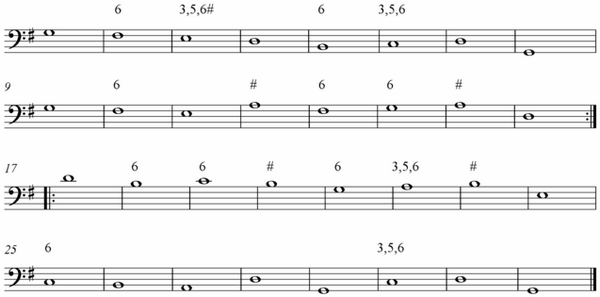Of all the classical music there is out there that’s composed for solo instruments, I’m guessing that the piano got the largest heap. Haydn wrote 62 piano sonatas; Mozart wrote 18 (plus a huge number of other solo piano works), and Beethoven wrote 32. And there’s Chopin’s waltzes, etudes, and polonaises.
Funnily, I didn’t enjoy solo piano music very much. Certainly not when I was learning the piano – I dread those Clementi sonatas and I struggled with the Beethoven ones – and even when I started seriously listening to classical music, I stayed clear of piano works.
My first CDs of sonata music was a five disc set of Mozart’s piano sonatas performed by Hungarian pianist Jenő Jandó in 1996 who recorded a number of other piano music albums for the Naxos Records label. The music was enjoyable, but outside a couple of works that I’d played as a teenager, the music didn’t especially leave me with an impression, as great as Jandó‘s artistry was.
My favorite piano music today, strangely, lies elsewhere. I played Bach’s Prelude and Fugue in C as a Grade VIII exam piece, and all those hours of drilling and practice then left an indelible impression! So it’s ironical today that the piano works I listen to most often are Bach’s.
There’s an album of Bach’s music I recently picked up on eMusic, and this one’s an interesting one: The Goldberg Variations, a set of music comprising an aria followed by 30 variations which, interestingly, does not follow the melody line but the bass line instead:

 The Variations isn’t actually all that unfamiliar even for persons who don’t listen to the Classics. It’s the piece that’s heard in the background in Hannibal Lector’s cell in Silence of the Lambs, and also in The English Patient. In fact, the lovely final credits music of the latter seems a variation of these Variations itself.
The Variations isn’t actually all that unfamiliar even for persons who don’t listen to the Classics. It’s the piece that’s heard in the background in Hannibal Lector’s cell in Silence of the Lambs, and also in The English Patient. In fact, the lovely final credits music of the latter seems a variation of these Variations itself.
The new album of The Goldberg Variations I got is performed by Simone Dinnerstein in her breakout recording. What’s interesting is that Dinnerstein wasn’t a recording artiste but a Brooklyn piano teacher who raised her own $15,000 to make the recording. Her performance shot straight up to #1 on the Billboard classical music charts, and been compared to Glenn Gould’s 1955 album which listeners regarded as the standard to which all Goldberg Variations recordings are compared to.
This Myspace web site has embedded recordings of her two pieces from her albums: including the Aria from the Variations here. The first piece that plays off this web site though is the Gavotte from Bach’s French Suite No. 5 in G, recorded at a live Berlin concert – the Gavotte is my favorite piece of piano music, anywhere.:)
Alternatively, here’s a video of Dinnerstein sharing about how she learnt the piano, and about her family. The Aria from the Variations is also heard in the video.:)
Highly recommended.:)
Funny- I was just listening to the aria from Goldberg variations today – as part of the soundtrack for English Patient….am feeling pensive…. maybe that’s why I’m in that kind of a mood for this piece.